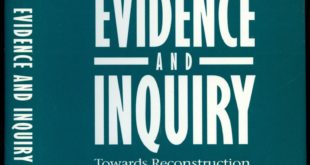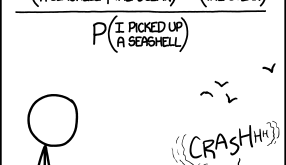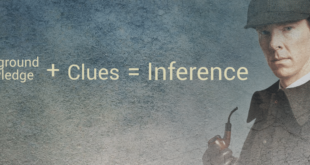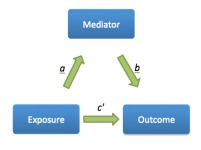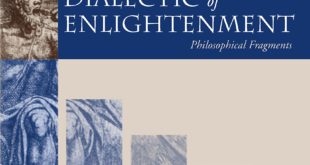Science and crossword solving The model is not . . . how one determines the soundness or otherwise of a mathematical proof; it is, rather, how one determines the reasonableness or otherwise of entries in a crossword puzzle. . . . The crossword model permits pervasive mutual support, rather than, like the model of a mathematical proof, encouraging an essentially one-directional conception. . . . How reasonable one’s confidence is that a certain entry in a...
Read More »Frank Ramsey — a portrait and a critique
Frank Ramsey — a portrait and a critique .[embedded content] Mainstream economics nowadays usually assumes that agents that have to make choices under conditions of uncertainty behave according to Bayesian rules, axiomatized by Ramsey (1931) and Savage (1954) — that is, they maximize expected utility with respect to some subjective probability measure that is continually updated according to Bayes theorem. If not, they are supposed to be irrational, and...
Read More »Big Data — a critical realist perspective
Big Data — a critical realist perspective .[embedded content]
Read More »Hegel in 60 minuten
Hegel in 60 minuten .[embedded content]
Read More »Abduction — beyond deduction and induction
Abduction — beyond deduction and induction Science is made possible by the fact that there are structures that are durable and independent of our knowledge or beliefs about them. There exists a reality beyond our theories and concepts of it. Contrary to positivism, yours truly would as a critical realist argue that the main task of science is not to detect event-regularities between observed facts, but rather to identify and explain the underlying...
Read More »Causal mediation
In the real world, it’s my impression that almost all the mediation analyses that people actually fit in the social and medical sciences are misguided: lots of examples where the assumptions aren’t clear and where, in any case, coefficient estimates are hopelessly noisy and where confused people will over-interpret statistical significance … So how to do it? I don’t think traditional path analysis or other multivariate methods of the...
Read More »Theory-ladenness
It is now widely recognised that observation is not theory-neutral but theory-laden, and that theory does not merely ‘order facts’ but makes claims about the nature of its object. So, in evaluating observations we are also assessing particular theoretical concepts and existential claims. A common response to this shattering of innocent beliefs in the certainty and neutrality of observation has been the development of idealist (especially conventionalist and rationalist)...
Read More »Gödel and the limits of mathematics
Gödel and the limits of mathematics .[embedded content] Gödel’s incompleteness theorems raise important questions about the foundations of mathematics. The most important concern is the question of how to select the specific systems of axioms that mathematics is supposed to be founded on. Gödel’s theorems irrevocably show that no matter what system is chosen, there will always have to be other axioms to prove previously unproven truths. This, of course,...
Read More »Enlightenment and mathematics
When in mathematics the unknown becomes the unknown quantity in an equation, it is made into something long familiar before any value has been assigned. Nature, before and after quantum theory, is what can be registered mathematically; even what cannot be assimilated, the insoluble and irrational, is fenced in by mathematical theorems. In the preemptive identification of the thoroughly mathematized world with truth, enlightenment believes itself safe from the return of the...
Read More »Foucault’s cryptonormative approach — a critique
Foucault’s cryptonormative approach — a critique I always found Foucault’s work frustrating to read. His empirical accounts are interesting and some of his concepts fruitful – disciplinary power, capillary power, surveillance, technologies of the self, the entrepreneur of the self, for example – and he was prescient about neoliberalism, but his theoretical reasoning is often confused. His attempts to define power, and his unacknowledged slippage between...
Read More » Heterodox
Heterodox

